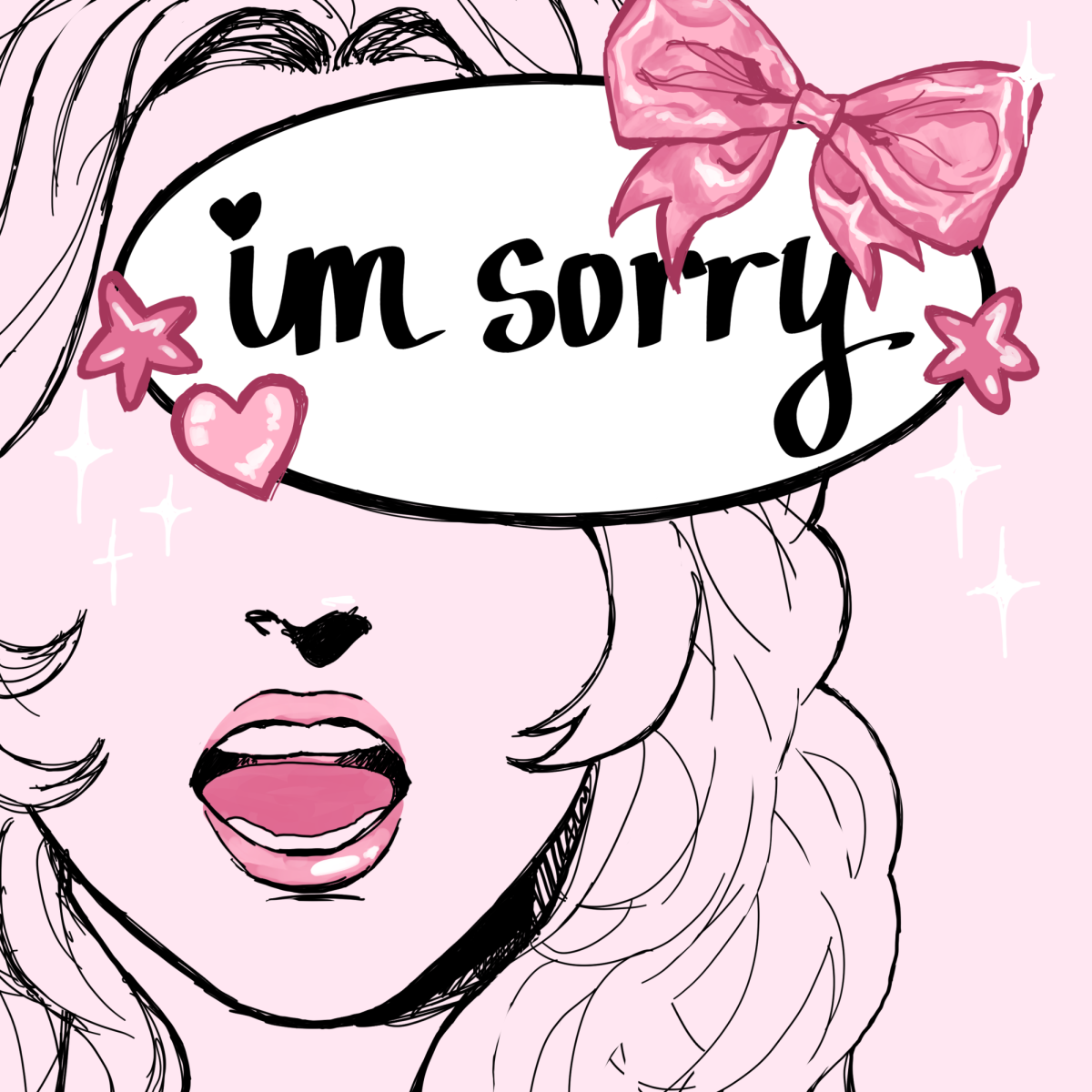It is almost as if “sorry” is the default response for women. They apologize for having emotions and showing them, for asking a valid question and for walking in the same direction as someone in the store, they apologize for their failures and their successes. In every situation women automatically respond with an unnecessary “sorry.” As a woman, I find it exhausting.
Research shows that women apologize more than men because they have a higher threshold for what constitutes an offense. Women apologize so often, they don’t even notice they are doing it. In my own experience, it wasn’t until I became more aware of my overapologizing that I realized I prompt questions for my male professors as “Sorry, I was just wondering …” When I am in a store and walking in the opposite direction of a man, I am the first to move out of the way and say sorry. When passing by someone walking while on a run a “sorry” slips out.
Now if you identify as a woman and are reading this, I want you to think of how many times you apologized for things throughout the day that do not warrant an apology. And if you don’t identify as a woman, reflect on how many times you have witnessed a woman apologize for simply existing or how many times a woman has apologized to you for no reason. I have no doubt that this is a common occurrence, and just because this has become a part of womanhood society has brought upon us, it doesn’t mean we should accept it.
There are a multitude of reasons why overapologizing is a common trait among women — whether it be because they desire to be liked or the fear of conforming to the societal idea that a woman speaking up and being assertive equates to rudeness, bossiness and stubbornness. However, I want to focus on how harmful constant apologizing is to women’s and young girls’ confidence.
Constantly apologizing for speaking their mind in a classroom or a professional meeting conditions women to actually feel sorry for having ideas and wanting to express them, convincing themselves it is an interruption to have a voice. On the contrary, their male counterparts feel less intimidated speaking their mind in these settings. Nearly 80% of women already have low self-esteem and lack self-advocacy in the workplace. The normalization of apologizing only adds to this statistic and holds more women back from career development and opportunity. This lack of confidence has a ripple effect causing women to undermine their own qualifications, putting workplace representation as a whole at risk.
This is part of the reason having women in positions of power is a rarity. It is widely shown that society favors men in positions of power. Due to this, women doubt their worth and fear how their image will be affected when they voice their opinion without prefacing it with an apology.
Since there is no doubt that this is a prevalent issue, we have to find ways to address it, empower women and let them know an apology is not necessary for speaking when you have the right to speak, for walking where you have the right to walk and for simply existing.
I implore all women and girls to challenge this notion. I myself have been trying to say sorry less for the little things. I just ask questions now, I don’t apologize before doing so, and because of this I have found a new confidence in my womanhood.
My friend Zoë explained to me that she makes an effort to not be the first to move out of the way and apologize when she sees a man walking in the same direction so she can end the expectation of women always being the ones to get out of the way. My other friend, Smita — who is in the male-dominated major of mechanical engineering — has made it a goal to be assertive and not shy away from conversations in the also male-dominated Formula 1 club she is a part of. In doing so, she has been able to display her intelligence and share her ideas while being listened to and heard by her peers.
Our generation of young, intelligent women are now recognizing this pattern of overapologizing and making clear efforts to bring it to an end. We are now noticing our knowledge and worth in various fields and are not afraid to show it. Because of this, we are introducing a new league of women into the workforce who don’t feel the urge to apologize and see their worth.
While this problem persists, it is not eliminated and the only way to continue the progress being made is to continue to empower women, give them platforms, listen to them, hear them and help them feel confident in their existence.
Grace Harris has a passion for social justice and advocacy. Her email is always open to more ideas — gmh66@pitt.edu



